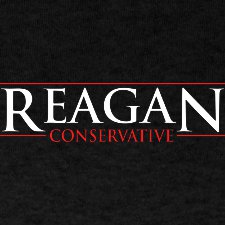Note: The translation from French to English was done using Google Translate, so take that with a grain of salt.
In the US, the "profiling" of still further constituents
The strength of the digital teams Barack Obama contributed to the difference in 2008 and especially in 2012
In the US, everyone remembers "the victory of Big Data," as the newspapers headlined at the re-election of Barack Obama in 2012. The US president had been able to target 15 million indecisive and broaden its base Election compared to 2008, particularly among young people. The digital campaign has become a model of its kind which today inspire presidential candidates next year.
"The tools are not exactly new for 2016, but they are refined, said the political advisor big data expert, Steve Parkhurst, the Texas firm American Renaissance. The campaign teams develop a multitude of tablet and smartphone applications to better achieve and identifying potential voters. "64% of Americans today have a mobile phone, according to Pew Research, against 35% in spring 2011, when the presidential election campaign began.
. Swing states The "profiling" method evolved: there four years, voter identification was based on geolocation, defined from residential areas. Today, it is a "get people where they are, that is, anywhere," said Steve Parkhurst yet. Although residents of "swing states" - those American States which can switch in the Democratic camp or the Republicans one election to another - are still targeted, research is no longer based on an address or postal code but on the tastes, preferences and conversations. It is crossed with the analysis of data available on social networks, the number of users in the US is expected to exceed 186 million in 2016 against 160 million in 2012, according to estimates. Seven US ten Internet users today have a Facebook account.
The strength of the digital teams Barack Obama was their ability to "track" the BarackObama.com website could leave up to 87 different cookies while browsing, MittRomney.com, website Republican rival candidate, not included as 48, revealed the Wall Street Journal in November 2012. The information collectors have informed accurately about the habits of Internet users - what read newspapers, or favorite foods charities supported by example and helped to customize the messages that whether in emails to solicit donations and volunteer hours or in political commercials.
"Massive data are not sufficient in themselves, Steve Parkhurst notes, however, you also have the right person asking the right questions." Barack Obama had attracted a genius cloud as Harper Reed, key man of his campaign 2012. Not sure Hillary Clinton, despite the help of Groundwork, a start-up created by the Executive President of Alphabet (parent Google) Eric Schmidt to help the candidate to hire talent, also has an attractive candidate.
In the US, everyone remembers "the victory of Big Data," as the newspapers headlined at the re-election of Barack Obama in 2012. The US president had been able to target 15 million indecisive and broaden its base Election compared to 2008, particularly among young people. The digital campaign has become a model of its kind which today inspire presidential candidates next year.
"The tools are not exactly new for 2016, but they are refined, said the political advisor big data expert, Steve Parkhurst, the Texas firm American Renaissance. The campaign teams develop a multitude of tablet and smartphone applications to better achieve and identifying potential voters. "64% of Americans today have a mobile phone, according to Pew Research, against 35% in spring 2011, when the presidential election campaign began.
. Swing states The "profiling" method evolved: there four years, voter identification was based on geolocation, defined from residential areas. Today, it is a "get people where they are, that is, anywhere," said Steve Parkhurst yet. Although residents of "swing states" - those American States which can switch in the Democratic camp or the Republicans one election to another - are still targeted, research is no longer based on an address or postal code but on the tastes, preferences and conversations. It is crossed with the analysis of data available on social networks, the number of users in the US is expected to exceed 186 million in 2016 against 160 million in 2012, according to estimates. Seven US ten Internet users today have a Facebook account.
The strength of the digital teams Barack Obama was their ability to "track" the BarackObama.com website could leave up to 87 different cookies while browsing, MittRomney.com, website Republican rival candidate, not included as 48, revealed the Wall Street Journal in November 2012. The information collectors have informed accurately about the habits of Internet users - what read newspapers, or favorite foods charities supported by example and helped to customize the messages that whether in emails to solicit donations and volunteer hours or in political commercials.
"Massive data are not sufficient in themselves, Steve Parkhurst notes, however, you also have the right person asking the right questions." Barack Obama had attracted a genius cloud as Harper Reed, key man of his campaign 2012. Not sure Hillary Clinton, despite the help of Groundwork, a start-up created by the Executive President of Alphabet (parent Google) Eric Schmidt to help the candidate to hire talent, also has an attractive candidate.






No comments:
Post a Comment